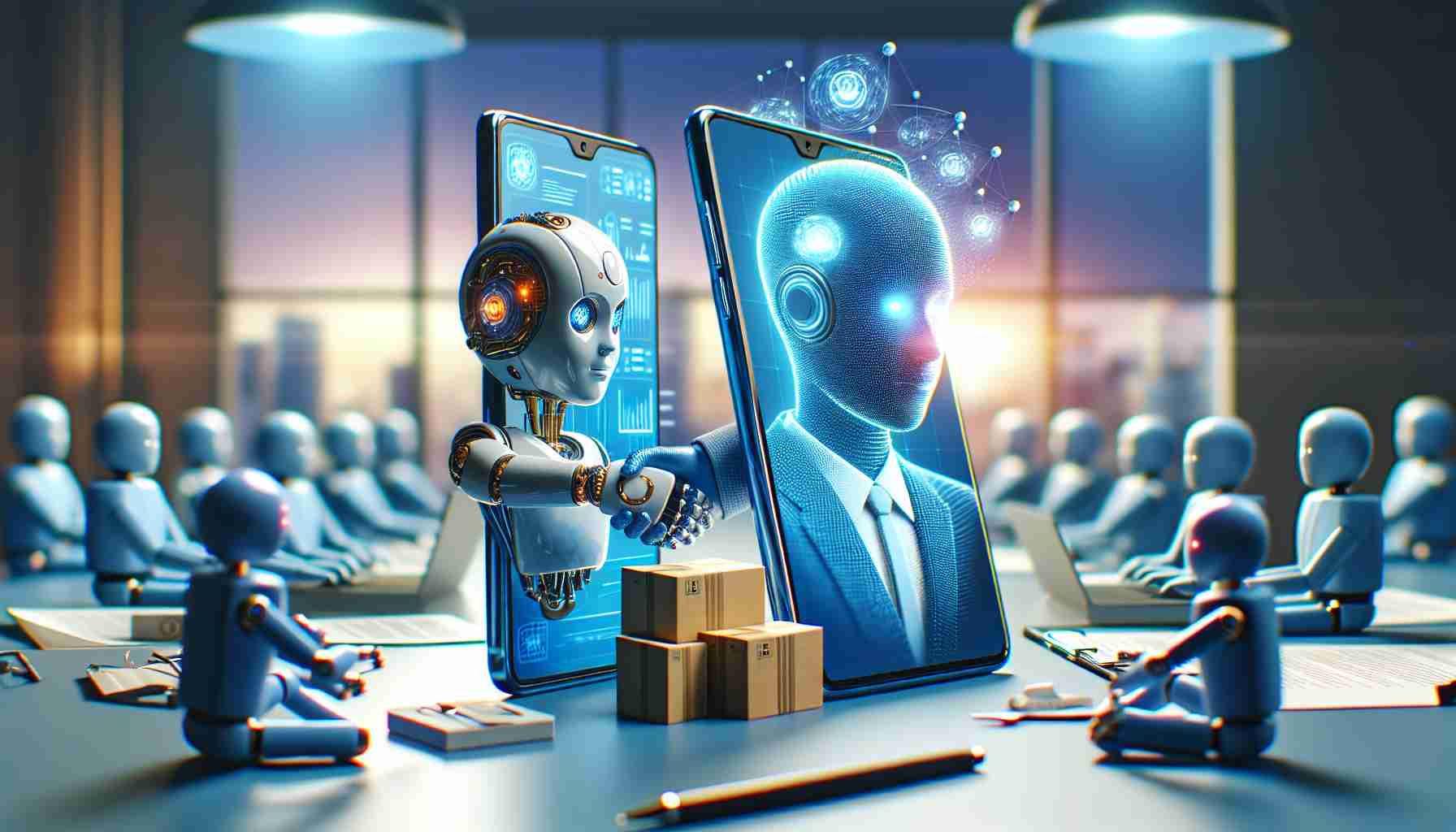Apple Inc. is on the brink of enhancing the iPhone experience by incorporating artificial intelligence capabilities from pioneering firm OpenAI. Sources reported to Bloomberg that substantial progress has been made in negotiations for the utilization of OpenAI’s technology, potentially introducing ChatGPT features in Apple’s forthcoming iOS 18.
The integration of OpenAI’s popular chatbot would mark a significant step in Apple’s pursuit of ingraining advanced AI features across its devices. Notably, the tech giant is also in active discussions with Alphabet Inc.’s Google to license its Gemini chatbot technology, although these talks have not yet culminated in a deal.
Apple’s CEO, Tim Cook, has been an outspoken advocate for AI’s transformative potential and has notably claimed to use OpenAI’s ChatGPT himself. Despite facing certain hurdles before finalizing the adoption of new AI features into Apple’s product suite, Cook has assured that such integration will be executed meticulously.
In a recent earnings call, Cook expressed confidence in Apple’s position within the realm of artificial intelligence, suggesting the company’s unique blend of hardware, software, and services will provide a distinctive edge in the unfolding AI era. This alliance with OpenAI appears to be a testament to Apple’s commitment to pioneering AI advancements in the tech industry.
**Important Questions and Answers:**
1. What could be the potential benefits of incorporating OpenAI’s technology into the iPhone?
One major benefit would be the enhancement of the user experience through more advanced AI features such as natural language processing and understanding. This could lead to improved voice assistants, more intuitive predictive text, and more personalized interactions with devices.
2. How might Apple address privacy concerns regarding integrating OpenAI’s technology?
Apple has a strong track record of prioritizing user privacy. The integration may likely focus on maintaining that stance, perhaps by processing AI interactions on-device rather than on cloud servers, or by applying strict data anonymization and security protocols.
3. Will the integration of OpenAI technology affect Apple’s relationship with other tech partners?
While collaborations such as the one with OpenAI can be beneficial, they could potentially strain Apple’s relationships with other tech companies if those partnerships are seen as competitive. How Apple manages these relationships will be key.
**Key Challenges or Controversies:**
One challenge could be ensuring that the AI’s responses are aligned with Apple’s privacy and content policies. There might be controversy if the AI delivers inappropriate or biased content. Another challenge is the balance between innovation and user privacy, a cornerstone of Apple’s brand identity.
**Advantages and Disadvantages:**
Advantages:
– Enhanced functionality and personalization of iPhones.
– A potential increase in device sales due to new, cutting-edge features.
– Strengthening Apple’s position as a leader in AI within the technology sector.
Disadvantages:
– Potential privacy and data security concerns.
– Risks of relying on a third-party AI platform, which might limit Apple’s control over the technology.
– Implementation challenges and the need to maintain Apple’s standard of user experience.
**Suggested Related Links:**
– Apple
– OpenAI
It’s crucial to note that the details, such as the specifics of the collaboration and how the AI technology will be implemented in iPhones, will play a significant role in shaping the outcomes of this initiative. The advantages and disadvantages discussed here are speculative and based on the general implications of integrating AI into consumer products.

